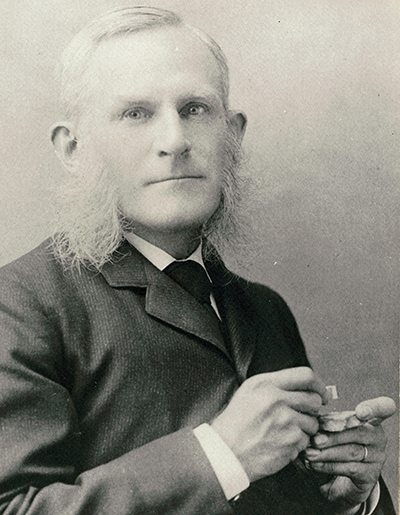Scudder, Samuel Hubbard (1837-1911)

BIOGRAPHICAL NOTE
Samuel Hubbard Scudder was an American entomologist and palaeontologist. He was born 13 April 1837 in Boston, Massachusetts and died in the same city 17 May 1911.
Scudder may be most widely known for his essay on the importance of first-hand, careful observation in the natural sciences. The treatise on inductive reasoning, entitled "The Student, the Fish, and Agassiz",reflects his initial experience under the tutelage of Louis Agassiz at Harvard University.
He graduated at Williams College in 1857 and at Harvard University in 1862, was a leading figure in American entomology from 1858, and the first North American insect palaeontologist. He also undertook systematic work with Lepidoptera (almost exclusively butterflies), Orthoptera , Mantodea and Blattoidea and fossil Arthropoda.
A student of Mark Hopkins at Williams College and Louis Agassiz at Harvard University, Scudder was a prolific writer, publishing 791 papers between 1858-1902, on insect biogeography and paleobiogeography, insect behavior ontogeny and phylogeny, insect songs, trace fossils, evolution, insect biology and economic entomology. He also wrote on ethnology, general geology, and geography
TAXONOMIC PUBLICATIONS
- Scudder, S. H. 1877b. The first discovered traces of fossil insects in the American Tertiaries. Bull. U. S. Geol. Geogr. Surv. Territ. 3: 741-762
- Scudder, S. H. 1878. The fossil insects of the Green River shales. Bull. U. S. Geol. Geogr. Surv. Territ. 4: 747-776 [
- Scudder, S. H. 1891. Index to the known fossil insects of the world, including myriapods and arachnids. Bull. U. S. Geol. Surv. 71: 1-744
REFERENCE
- Aspock, H. et al. 1991. Die Raphidiopteren der Erde. 2 vols. Krefeld p. 32, portrait.